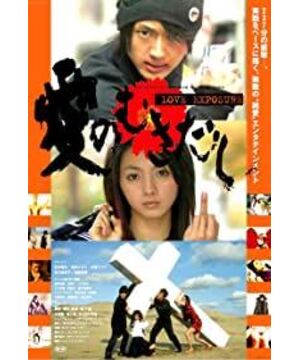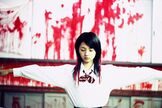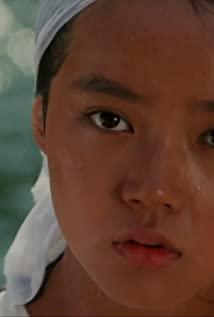Sonoko Wen, like Shuji Terayama, made it difficult for me to use rational and logical sentences to speak about it. Because he just shoots whatever he wants, all kinds of absurd, perverted, large-scale, nonsensical, anti-logical, as if he is using the camera to have a serious dream about love and desire, and then the extreme scenes are nothing but "babble" The way. But all kinds of exaggeration and nonsense just look like this, and the use of a series of extremes and anomalies to render the atmosphere may be its intended style. Sono Ziwen is quite pessimistic, otherwise he would not have made such a story, using the extreme problems of the three original families to create an impossible situation, the "perversion" of the three people is just a supplement to the absence of their own desires, Honda Yu's Candid photography stems from the fact that in the absence of love, because the father himself cannot castrate his entangled sexual desire, he suppresses love with the concept of "sin", so the uncontrolled erection after that is like the awakening and resistance of the ability of love. Chizi obtains self-satisfaction from the simplicity and pleasure of killing her father after her father's violence, so she replaces love (extreme S) with violence and control that is simple and feasible for her, which is also the reason why she committed suicide when she finally found out that everything was not working. , Yoko's cognitive dissonance is the most serious, always self-perceived as nothingness in a broken real construction (from father's memory, resentment to father to hatred of men) and the conflict of desire for love but having to face new reality And once relied on entering a cult to paralyze himself and become an empty shell.
There are so many things that can be unearthed in the whole 4 hours, many details can be extended to analyze, from the original family, school education, institutional religion, from the Japanese society, and even modern urban civilization, post-industrial capitalist society. repressive structure. When Yoko first appeared in the image of "Maria", she seemed to make women a kind of desire but not desire, a unity of the fullness of desire and the fragility of the real body exposed to the desire of the male "other". But then Sonoko Wen bankrupted this analyzability, because Yoko immediately knocked over the men with her bare hands, also seen in Ikeko. Sono Ziwen may not deliberately play with various ideological feminist discourses, of course religious discourses, etc., easily surpassing the image construction of male and female, but still retains the intention of male genitalia as an unrecognizable symbol. A place for chemical analysis, a physiological expression that can be one with love, this is Honda's "erect", instead of Yoko's father's genitals as a symbol of an aggressive, intrusive, possessive desire structure.
Yuan Ziwen's extremely exaggerated performance first shattered the religious discourse, and singled out love, saying plainly that pure love can also be found in the vulgar, anti-moral, etc. The boundary between the sacred and the secular has never existed, and neither does the other side of the world. There is only this bad world that is absurd and ridiculous, but to love there is hope, what is love? He didn't answer, because the experience of this world is different for everyone, love is not achieved overnight, and the expression of love is worlds apart as in the movie, love can be pain, love can be erection, love can be sin, But it seems that no matter what, love is always towards tolerance, towards letting go and then moving forward. It is a stream of hope, and it is never ending. Hope, love story. A schizophrenic (breaking all dogma and morality at will) exposure of serious love.
It's not exactly my Taste, but it does have an irreplaceable and unique sense of beauty, and the world is really about taste and beauty fundamentally.
View more about Love Exposure reviews









